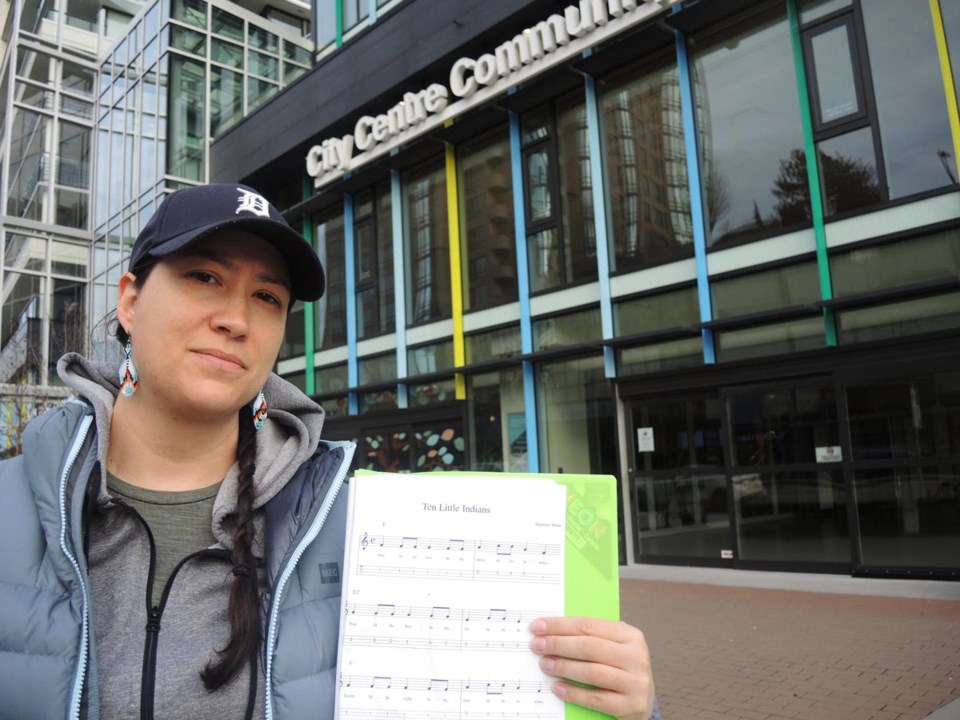Lindsay Heller has lived with the legacy of colonization her whole life so she was not impressed when her daughter showed her the sheet music from a ukulele lesson at City Centre Community Centre.
It was the children’s song Ten Little Indians.
Heller, who is Cree, was adopted by a non-indigenous family as a baby and her grandmother attended residential school. She teaches her daughters the truth about her family’s history with colonization, but she is also raising them to be proud of their indigenous heritage. When she saw the music, Heller said she couldn’t believe this was possible in this day.
“I don’t want my daughter to have these artifacts worked into the things she’s doing,” Heller said. In the class, her daughter was told to substitute the word “minion“ for “Indian.“
While Heller recognizes society has come a long way and this might have been acceptable 20 years ago, she said “the roots of this song are genocide,” and there’s “no excuse” for this kind of oversight today.
“In this time of decolonization and reconciliation, progress has been made,” Heller said. “There should be cultural training, some oversight.”
Ted Townsend, spokesperson for the city of Richmond, said the city is “strongly committed” to supporting diversity.
“We are still looking into the circumstances around this particular incident, but obviously this is an inappropriate choice and not something condoned by the city,” he said in an email.
He added that the city thinks this is an “isolated example of poor judgment,” and they will be reviewing the issue internally “to determine any further steps necessary to ensure all instructors and contractors in our community programs understand our commitment to being an inclusive organization.”
Heller, a graduate student in Indigenous Education at SFU and a dialogue facilitator for the National Inquiry into Missing and Murdered Indigenous Women and Girls, is involved in bridging work that is all about education and understanding inter-generational trauma.
Heller is part of the Michel First Nation diaspora, which was coerced to leave their land outside St. Albert, Alta., just northwest of Edmonton.
When things like Ten Little Indians come up, Heller said indigenous people have been told to “get over it” and it’s just a children’s song. But having lived with the legacy of the residential school system and having grown up being taught to be ashamed of her First Nations culture, she doesn’t want the same thing for her daughters.
“I’m not trying to shame anybody or call anybody out in a shameful way, but it’s a teachable opportunity,” she said, adding that her daughter enjoyed the class and the instructor. She doesn’t understand where the “gap” came from that allowed for no cultural sensitivity training at the centre.
This is something that non-indigenous people don’t need to ever face, Heller said, adding “it’s something easy that shouldn’t have happened.”
The city has a social development strategy which directs staff to consult with First Nations and urban aboriginal populations, Townsend explained.
The city also takes part in the Indigeous Collaborative Table, which is building relationships with indigenous communities to integrate the art, culture and heritage of indigenous people into the city`s programs and amenities. Supervisory staff in the community centres work with instructors and program leaders in regards to inclusivity and “creating a welcoming and safe environment for all,“ Townsend added.
The instructor couldn’t be reached by the News for comment.



